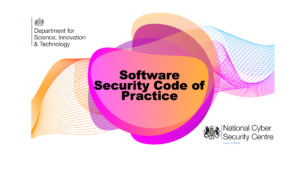
How can government enable SMEs to thrive?
Often procurement in the public sector can feel like an afterthought or simply a necessary evil.
As discussed at the parliamentary Science and Technology Committee earlier in the year, a real win would be to make procurement and commercial teams in the public sector work more strategically.
Integrated Procurement
Today, as an SME, central government procurement feels like a compliance function. There has to be a way commercial teams play a more strategic part in ensuring the delivery of public sector services is done in the right way. Let’s banish the phrase: “I’ll need to get commercial involved.” Let’s ensure instead they are involved from the start and playing a lead in the conversation, rather than coming in late and picking up often complicated solutions at short notice.
How can this be achieved? It will take investment, but:
- ensure that the commercial teams are mandated to be involved in all aspects of the services required (from conception) and tasked with engaging with the market early.
- ensure the commercial teams have the right skills and investment to take a lead on internal discussions on service development and drive this into individual departments and agencies
- Invest in procurement tools. Digital Marketplace was a great start, G-cloud led the way and it’s good to see the government exploring ways to promote this. But let’s set the bar high, there should be a vision and ambition behind public sector procurement that feels missing. Sometimes as an SME, it can feel more about the framework levy being collected rather than really ensuring that you can get across your innovative ideas and solutions. So let’s invest in truly great tools, get the right people and really look at innovative approaches for suppliers to engage. As an SME, all we want is a chance to get across our new thinking to the right people (and as a specific point, how about scrapping the Levy for SMEs?)
Proactive Engagement
Early market engagement has been around for a long time, but again as an SME supplier, it feels very hit and miss — in all honesty, more of a miss! SMEs, with limited resources, would love a greater emphasis on the “push” of information to us. For example, Crown Commercial Service has the contact details for all the suppliers on DOS and G-cloud, could this not form the basis of a proactive distribution list for all of central government about upcoming activity and thinking? I am sure there are many more possibilities.
The perceived risk must be that it creates too much demand for engagement, which just can’t be met. Again though, this is an opportunity lost. Real advances in engagement will need investment in communication, people and tools that help engage SMEs better. Make engagement easy and straightforward. At present we find ourselves constantly having to sign up to different lists and often missing out on events that we could have added value to.
In fairness, the work that Innovate UK does to drive innovation is fantastic but let’s grasp the opportunity that digital and technology presents to create a synergy between government and industry.
Skills
One of the joys of working in central government is being able to play the game of “spot the civil servant” in any given meeting. It is not uncommon on big programmes for there to be no civil servants. Is this a problem? From what we see, yes. It can feel like there is no strategic oversight. Plus if the work consists of only external contractors, the skills and knowledge can leave when they depart.
There are great examples of how building in-house skills are working, specifically the digital teams that many departments and agencies have built. It’s also clearly not just about investing in a new digital team. There are cost implications and the practicalities of managing salaries, careers and personal development are not easy.
Initiatives such as the GDS Academy show what is possible. And it feels with a visionary and structured approach to internal skills, it should be possible to re-balance the workforce between civil servants and contractors.
Does this matter to an SME? Absolutely; one of the hardest things is hiring the right staff. Anything widespread and proactive in central government would help drive the availability of skills more broadly. Plus, we love to partner with government organisations to symbiotically develop the skills base.
One final point; there has to be a better way to manage SC clearance. We understand the need, it’s just about understanding the process. With some thought (and yes, potentially, investment again) it could be done better, making resources and capability available at a greater pace and more efficiently.
Related content
-

From guidance to action: raising the bar on software security across UK supply chains
Published on: 16 January, 2026 -

Designing in secure spaces: How to be user-centred when user access is limited
Published on: 12 January, 2026 -

Zaizi founder Aingaran Pillai named chair of techUK’s Security and Public Safety SME Forum
Published on: 2 December, 2025 -

Modernising government for AI: What key challenges do departments face?
Published on: 6 November, 2025
